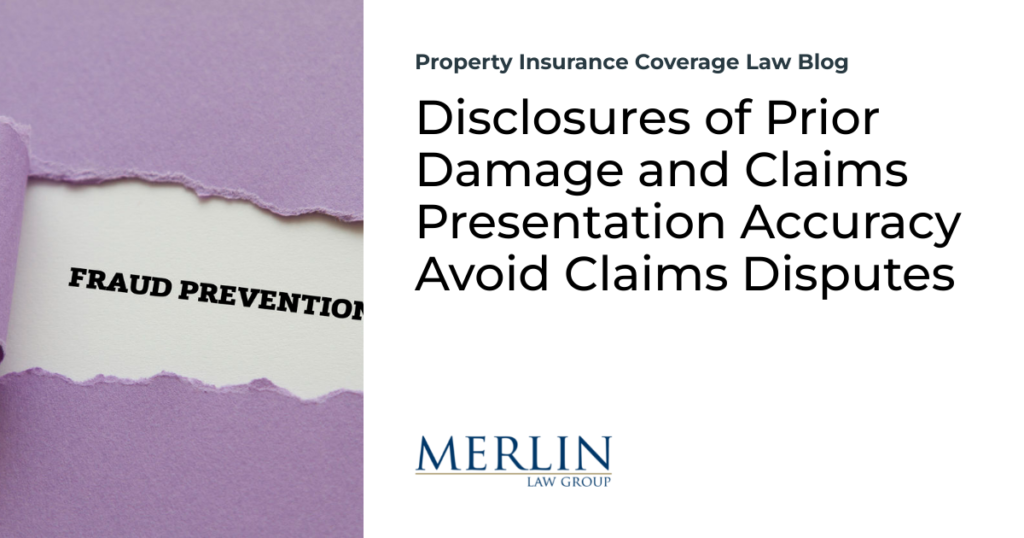Disclosures of Prior Damage and Claims Presentation Accuracy Avoid Claims Disputes

Karen Schiffmiller, a leader and Past President of the Florida Association of Public Insurance Adjusters, wrote the following note in response to an article, Miami Homeowner Charged with Defrauding Citizens by Claiming Old Damage:
Why you should always ask questions. All Public Insurance Adjusters have a responsibility, when potentially representing a client, to do your due diligence and ask questions if there were any prior claims and damage at the property.
Always, always, always do the right thing! If you are unsure if something is covered, or the damage looks like it has been going on for a period of time, or the damage looks old, ask questions and do your homework!
The article noted:
Florida authorities have charged a Miami man – who has a long record of criminal and civil cases under his name – with insurance fraud after investigators found that some $300,000 in claims were linked to pre-existing damage to his home.
Damacio Covon Green, 52, was arrested earlier this month after he claimed almost $80,000 in damage to his Miami Gardens home from a backed-up drain line in early 2021, according to the Florida Department of Financial Services. A Citizens Property Insurance Co. adjuster found that the damage had occurred before the homeowner policy was written in 2020, the department said in a statement.
The revelations in the 2021 claim led investigators to determine that $302,000 in previous claims were for alleged damage that was old and had not been disclosed when policies were inked, a DFS spokesman said.
The best adjustment practice is to always determine the condition of the property before the loss occurred. Every adjuster will need to know this just to determine an actual cash value estimate of damage. By doing so, questions about prior insurance claims, damages from prior occurrences—repaired and not repaired, and the amount of wear and tear to a property will always be inquired so that claims disputes and charges similar to the above can be minimized or avoided.
Is prior unrepaired damage always excluded? In most cases, the answer is “yes.” But I suggest readers of this blog re-read this post: Prior Flood Damage Does Not Need to Be Repaired to Have Subsequent Flood Claim Paid.
Thought For The Day
We were criticized throughout that investigation for being too thorough, for taking too long. But time has proved the correctness of that approach.
—Ken Starr







